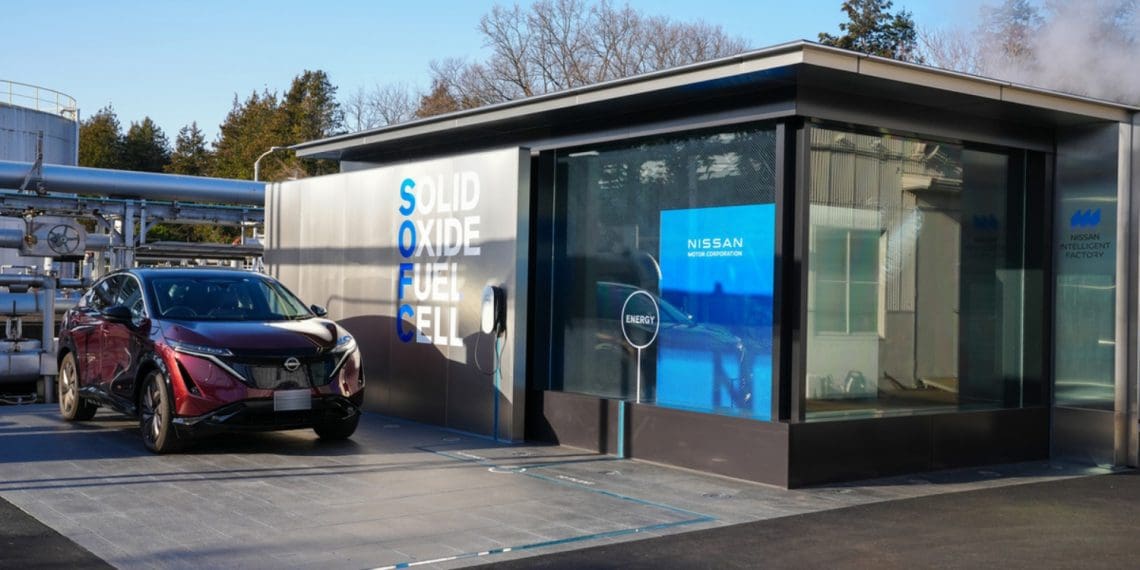Nissan Motor announced this Thursday that it has developed a stationary system, powered by bioethanol, capable of generating energy with high efficiency.
The Japanese brand has already started testing this new system at the Tochigi factory in Japan, with the aim of improving energy production capacity for large-scale operations from 2030.
Remember that Nissan became the world’s first automotive company in 2016 to create a vehicle propulsion system powered by a solid oxide fuel cell (SOFC) fueled by bioethanol, and is now applying this SOFC development experience to stationary energy generation systems.
Nissan has explained that “SOFCs can be easily combined with reformers that operate at high temperatures and can generate electricity using hydrogen obtained through the reforming of various fuels that react with oxygen, including ethanol and natural gas. Operations at high temperatures promote high catalytic activity, allowing the SOFC to achieve a high energy generation efficiency of 70%, compared to 60% for polymer electrolyte fuel cells (PEFCs).” .
Looking to the future, the development of a metal-supported cell, which is a component of the SOFC stack, will help increase the cell’s durability. “As a result, start-up and shut-down times can be reduced, and load-following operations can be performed in response to sudden fluctuations in production demand. This will enable effective operation of the SOFC system in the future, when the system is expected to be used in conjunction with renewable energies”.
Nissan has already announced its intention to achieve carbon neutrality in all company operations and product life cycles by 2050.
The goal is to fully electrify factory equipment, through the introduction of innovative production technologies and reducing energy usage.










